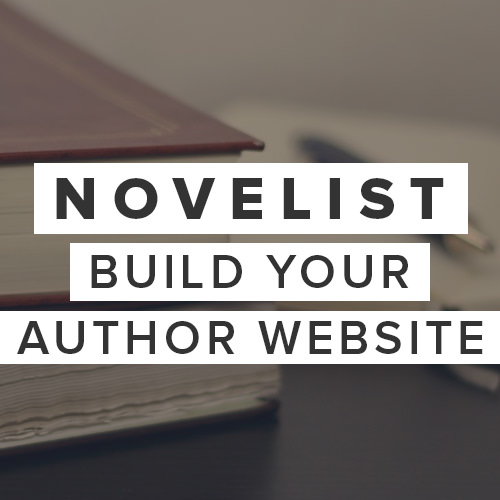Review: Sleeping Giants by Sylvain Neuvel
Posted by Giselle • 2 Comments
I received this book for free from Del Rey in exchange for an honest review. This does not affect my opinion of the book or the content of my review.
 Sleeping Giants by Sylvain Neuvel
Sleeping Giants by Sylvain Neuvel Series: Themis Files #1
Published by Del Rey on April 26, 2015
Genres: Adult, Sci-Fi
Source: Del Rey
Buy on Amazon
Goodreads

World War Z meets The Martian. This inventive first novel will please devoted fans of sci-fi as well as literary readers hoping a smart thriller will sneak up on them.
17 years ago: A girl in South Dakota falls through the earth, then wakes up dozens of feet below ground on the palm of what seems to be a giant metal hand. Today: She is a top-level physicist leading a team of people to understand exactly what that hand is, where it came from, and what it portends for humanity. A swift and spellbinding tale told almost exclusively through transcriptions of interviews conducted by a mysterious and unnamed character, this is a unique debut that describes a hunt for truth, power, and giant body parts.
In my humble opinion, this book was 320 pages of info dump. The Martial style except somehow more… overwhelming.
Please don’t get me wrong, I am not new to this kind of format. Like World War Z and Illuminae (Amie Kaufman and Jay Kristoff), the story of Sleeping Giants is told in the form of interviews conducted by a mysterious, nameless person who seems to have a lots and lots and lots of power as well as in the form of oral diary entries. I loved it when it was used in WWZ and Illuminae because despite it being quite straight-forward and in the form of documentaries, these books were still able to touch me on an emotional and personal level. They showed many perspectives and angles about a particular, seemingly-but-absolutely dreadful situation, and they made me care – care about the characters, care about the outcome, care about how they would cope with their trials and tribulations.
Sleeping Giants made me feel… indifferent, at best.
Here’s the thing: the premise is fantastic. I love the idea of aliens having visited the Earth thousands of years ago, back to that time we were still grunting and snorting to each other in order to communicate, and having left this gigantic monstrosity of a robot for us to find when we have progressed and evolved enough. In paper, that really sounds intriguing. Think of all the political drama that can come out of this! Think of all the philosophical, moral, ethical discussions! The drama! The panic and the riot and the coming together of mankind as they realize its potential as a defensive manuever against extraterrestrial forces! In an ideal world, I would have loved this to pieces and I would have paraded this all over my street saying, “Science fiction fans, come get your mama!”
But alas, it is not an ideal world, and this book lacked the emotional pull needed for me to completely and deeply immerse myself in it.
1.) Nameless interviewer.
80% of the book is comprised of interviews with a cast of characters. There’s Kara Resnik, a well-trained pilot. There’s Ryan Mitchell, her co-pilot; Rose Franklin, a motherly figure who leads the project of finding all the robotic parts, putting them together again, and finding out what it can do; Vincent Couture, an introvert linguist who hails from Quebec, among others. The anonymous interviewer is connected with all of them, yet we don’t find anything at all about him. He’s their Daddy Long Legs, funding their research and making sure everything is going smoothly, taking care of “problems” – people or otherwise – as how you would expect an ultra rich guy would take car of them. But… what else? We see the story through his interviews, and we get to “know more” about the characters through his questions, and then that’s it? He was definitely a pragmatist, and he was definitely very objective in his questions. “What did this scenario make you feel (even though I already know about it but we’ll need to repeat it again just so our beautiful readers here are aware)? What happened to you when this thingy happened (even though I already know about it and we’re just wasting our time here reminscing about it?)” Non-verbatim, but you get the picture.
2.) Telling than Showing
And then there’s the problem. Because of these questions, we are forced into reading a narrative that is 100% telling than showing. “I was doing this, I was doing that, I felt this, I felt that, I didn’t like this, etc. etc.” It was absolutely dreadful to know that these people were experiencing these things and yet *I* couldn’t feel them. I don’t know, maybe because of the format it was hard to do so? Maybe because it was just so limited and there’s no other way of showing them otherwise? But then, how did World War Z and Illuminae do it amazingly? There’s also the problem that things would happen in this book, but we would never, ever, EVER see them happening. We’re only told that it happened post-situation, when the interviewer is asking them to tell us about their feeeewings. It was hard to just care when I was never with them when that happened, when I never felt the adrenaline or the tension that they experienced that would make me relate to what they were doing.
3.) THE SCIENCE MADNESSSSSS
Now, let’s draw a line here: I love science. I love talking about aliens. I find space and the universe and everything that is in it fascinating. If I could, I would love to die floating in the vastness of empty space. But the science here made me cringe. There were just so much that it became overwhelming. The process of how to get the robot pieces? EXPLAINED IN DETAIL. The process of how they are trying to get the robot to work, all the theory and the steps? EXPLAINED IN DETAIL. The process of how they plan to do this and that, and then this and then that? EXPLAINED IN DETAIL THAT IT HAS BECOME PAINFUL. I get the need for science to be incorporated but it alienated the reader in me so much because so much of it were jargon. So many big words, and none of them resounded with me. Maybe I’m just stupid? Maybe I’m just not the target audience? But I DO love science, and I love it when it weaves together with the character’s personal lives, so maybe it’s just the book being a huge-ass info-dump?
In conclusion, I’m actually very sad that I didn’t like this book more. The ending was interesting, if not a little too “positive” for me to take seriously. But these three factors up there? They totally ruined my reading experience. The only reason I plowed on was because of obligation. I may still check out the next book though seeing as this is a series, in hopes that the narrative in that one will be a lot more personal and emotional than distant. However, if you’re the type of person who is a science geek and just want to get your science mood on with or without the emotional touch, maybe this will appeal to you.
2.5 Hot Espressos
























 Blog design by
Blog design by